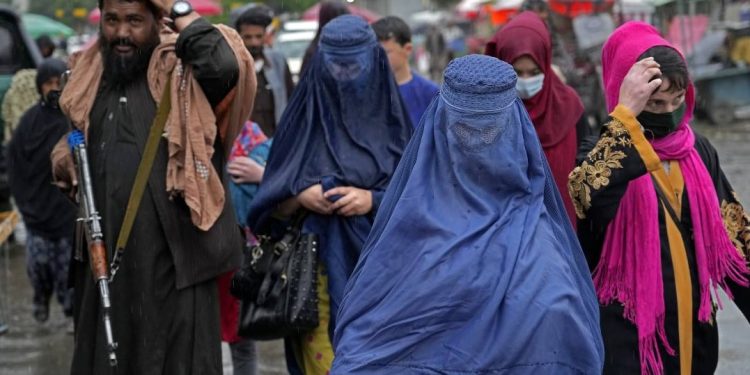By Oyintari Ben
According to the UN, a Taliban edict forbade Afghan women from working for the organisation.
Although there hasn’t been any recorded correspondence, according to the UN, the Taliban have spoken with them.
It has instructed all of its Afghan employees, both men and women, to take the next 48 hours off from work to receive clarification from the Taliban.
Since the Taliban seized power in 2021, women’s rights have come under growing pressure.
The action has been dubbed “unacceptable and frankly inconceivable” by the UN.
A UN spokesman said it “cannot operate and deliver life-saving assistance without female staff,” adding that it “is the latest disturbing trend undermining the ability of aid organisations to reach those most in need.”
Afghanistan, suffering from a severe economic and humanitarian crisis, has 23 million people who need humanitarian assistance. The UN has been working to provide this aid. In particular, they identify other women in need, which is a crucial part of the work done by female relief workers on the ground.
Female foreign employees are not subject to the prohibition. However, if carried out, this would be the most important test of the UN’s future operations in Afghanistan and its relationship with the Taliban administration.
According to the UN, Taliban local leaders in the eastern Nangarhar province on Tuesday prevented Afghan women from travelling to work at UN facilities.’
Secretary-General Antonio Guterres tweeted, “I firmly condemn the ban on our Afghan female coworkers working in the Nangarhar province of Afghanistan. This action will undoubtedly harm our capacity to provide people in need with life-saving assistance if it is not reversed.
Teenagers and women have been excluded from schools and universities since the Taliban retook power. A woman who goes more than 72 kilometres must be dressed so that only her eyes are visible, and a male relative must accompany her. (48 miles).
The simplest of liberties were taken away from women last November when they were prohibited from using parks, gyms, and swimming pools.
Additionally, proponents of female education have come under attack by the Taliban. A well-known Afghan advocate for women’s education named Matiullah Wesa was detained last month for an unspecified offence.
Prof. Ismail Mashal, a vocal opponent of the Taliban government’s prohibition on women attending college, was also detained in Kabul in February while distributing free books.




































